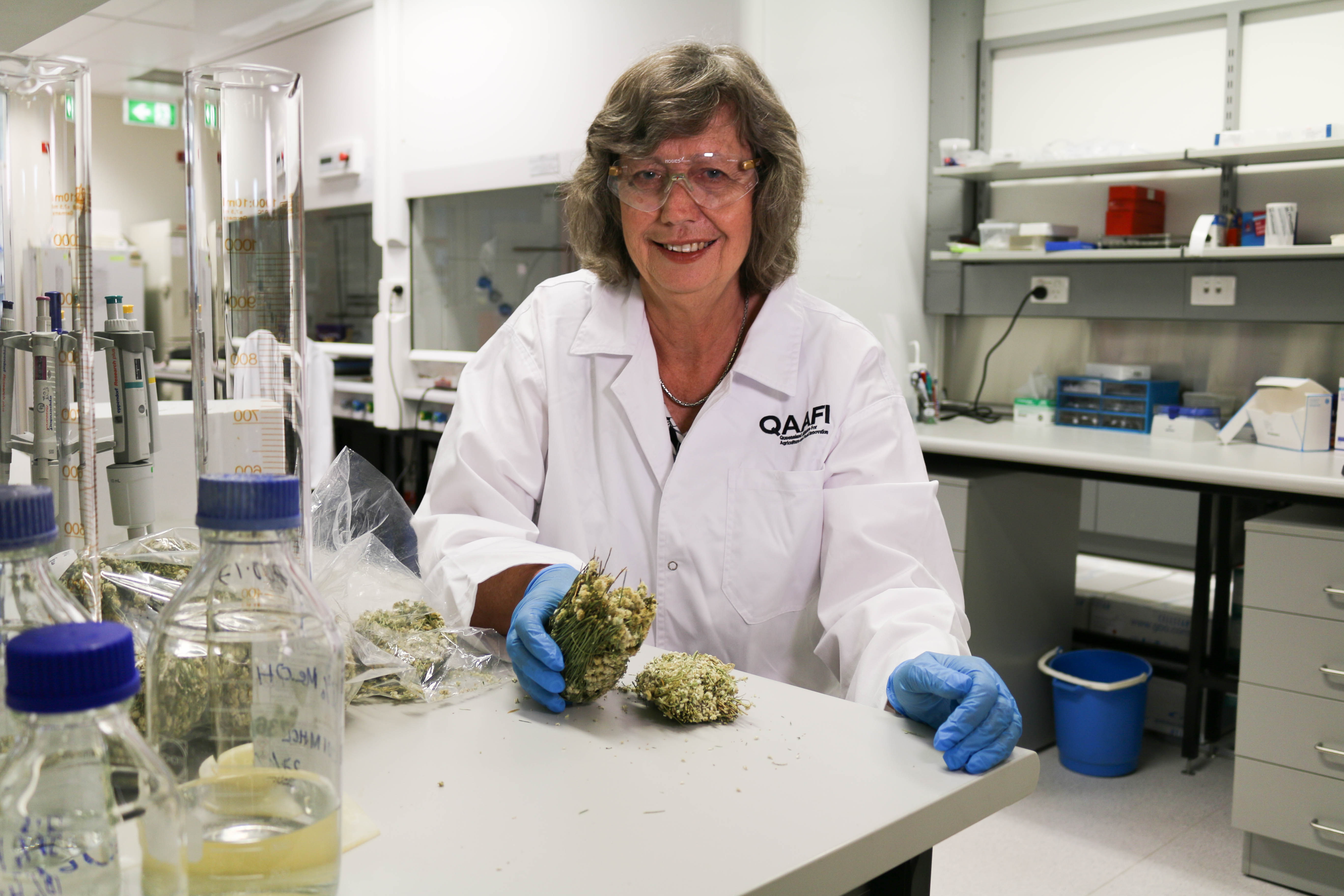A new QAAFI research project aimed at producing a preventative probiotic for cattle to mitigate poisoning from the potentially fatal pasture plant, pimelea, received funding from Meat & Livestock Australia (MLA) in 2017.

QAAFI’s Associate Professor Mary Fletcher has conducted a research project on improving beef production through the management of plant toxins, specifically: Pimelea.
Pimelea are small native herbs that are mainly found in inland areas of Australia, below the Tropic of Capricorn, with livestock poisoning primarily associated with native rice-flower (Pimelea simplex), and flaxweed (Pimelea trichostachya).
“MLA identified the impact of poisonous pasture plants on the health and productivity of grassfed cattle as a priority area, through the organisation’s regional consultation process with producers.”
“Pimelea poisoning affects cattle, sheep and infrequently horses, however it is potentially fatal for cattle. It can be caused by ongoing, accidental consumption of toxic plants or inhalation of dry plant dust and is most common in south-west Queensland, north-west New South Wales and northern South Australia.”
MLA General Manager – Producer Consultation and Adoption, Michael Crowley, said the new project aimed to produce a rumen inoculum containing microbes able to detoxify plant toxins, but initial work will concentrate on the pimelea toxin, simplexin.
All of the information contained on this page and the original article can be found: Pimelea Poisoning
